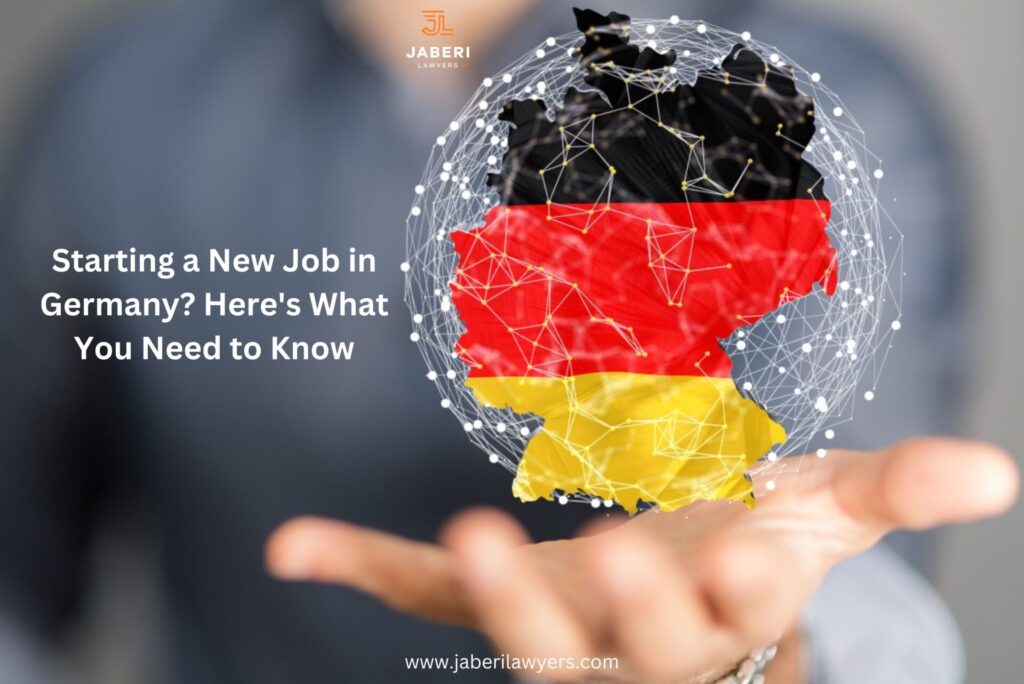Skilled Workers Law after March 2024

Germany is taking steps to enhance employment opportunities for skilled workers, particularly those with practical professional knowledge, in various sectors. These changes are aimed at simplifying the process of entering the German job market and attracting qualified professionals from around the world. In this blog post, we’ll break down the key provisions that make it easier for skilled workers to work and live in Germany.
- Special Provision for Practical Professional Knowledge:
One significant change is the expansion of employment opportunities for individuals with highly developed practical professional knowledge. This provision now applies to all non-regulated professions across all sectors. To be eligible, applicants need either a recognized professional qualification or a university degree from their country of training. Those with professional qualifications must have completed at least two years of training. In certain cases, a qualification from a German Chamber of Commerce Abroad may also be accepted. Furthermore, candidates should have a minimum of two years of work experience in their desired occupation. Formal recognition of qualifications in Germany is no longer mandatory. For IT specialists, the required professional experience has been reduced from three to two years, and language skills are no longer a visa requirement.
- Access to the Labor Market for Healthcare Professionals:
Assistants in nursing from third countries with less than three years of regulated nursing training can now work in the health and care sector in Germany. This is possible if they possess relevant vocational training in nursing in Germany or a foreign nursing qualification recognized in Germany.
- Job Seeking After Training in Healthcare and Nursing Professions:
Nursing and care assistants from third countries who complete their training in Germany can apply for a residence permit for job seekers. This permit is issued for up to twelve months and can be extended by an additional six months if the applicant’s livelihood is secured.
- Settlement Permit for Skilled Workers:
Foreign professionals holding a residence permit in accordance with specific sections of the Residence Act can now obtain a settlement permit in Germany after only three years (previously four). EU Blue Card holders can achieve this even more quickly, with the possibility of obtaining a settlement permit after 27 months of employment (or 21 months with sufficient knowledge of German).
- Facilitated Family Reunification:
For certain skilled workers, spouses, minor children, parents, and parents-in-law can join them in Germany without the need to provide proof of sufficient living space. This change applies to those who receive their residence permit for the first time on or after March 1, 2024.
- Residence Permit for Start-Up Grants:
Skilled workers as defined by the Residence Act can now be granted a residence permit for up to 18 months if they receive a grant from a German research organization or public body for the purpose of setting up a business.
Germany is making significant strides in welcoming skilled workers from around the world by simplifying the employment process and offering attractive provisions for settling in the country. These changes are not only beneficial for skilled workers but also contribute to the growth and diversity of the German workforce. If you are a skilled professional looking for new opportunities, Germany might just be your next career destination.
Related Blogs

Dual Citizenship in 2024: Countries That Allow Two Passports!
Welcome to our blog on dual citizenship! Discover which countries will permit dual citizenship in 2024 and learn how to appl......

Understanding § Section 32 AufenthG: A Step-by-Step Guide to Child Reunification
Looking to bring your underage child to Germany? Child reunification under § 32 AufenthG allows families to come t......

Starting a New Job in Germany? Navigating Employment Contracts in Germany: What You Need to Know
Starting a new job is an exciting step, but it also comes with important paperwork. In Germany, having a clear and comprehensive emp......

